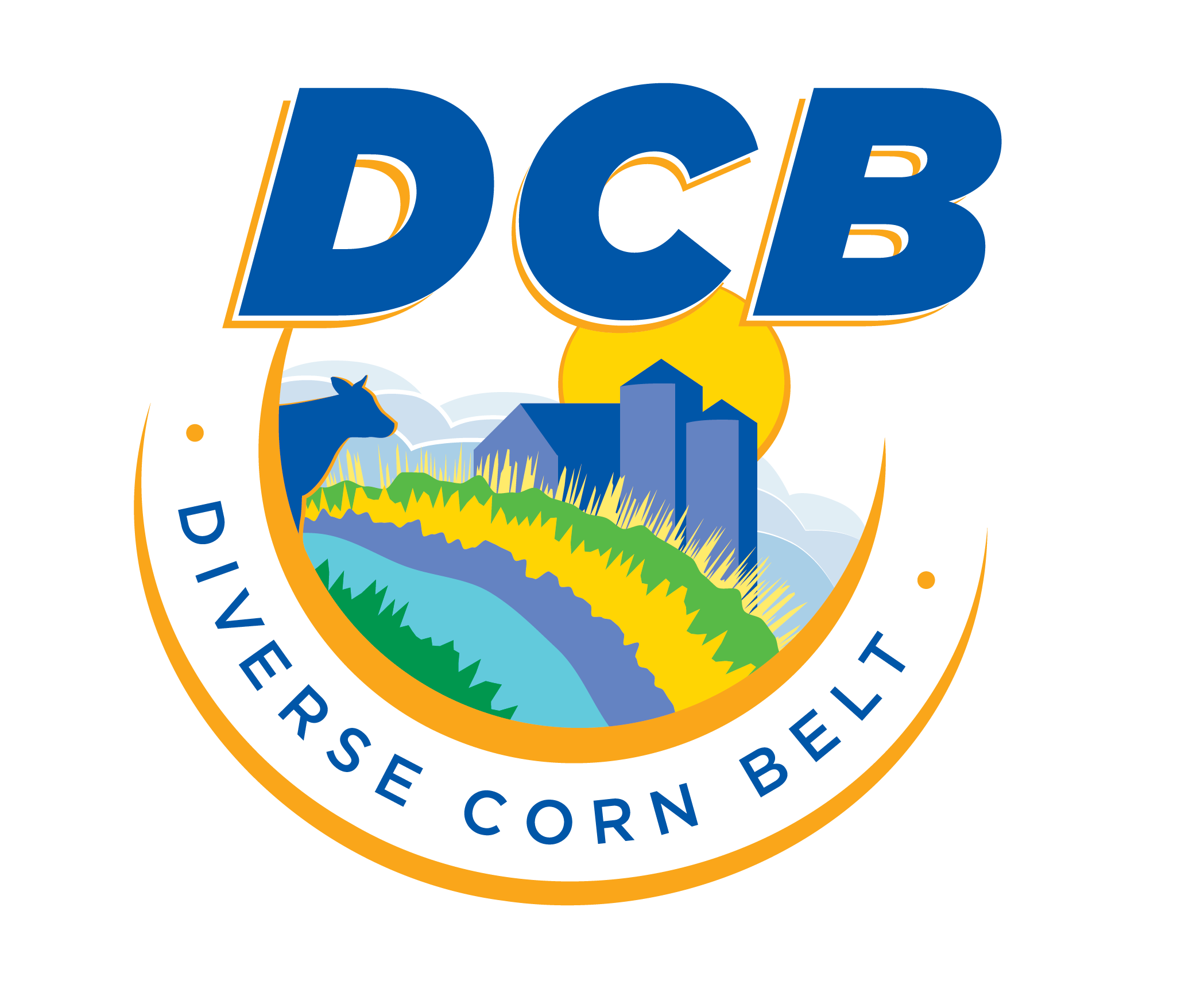MEET THE TEAM
The Diverse Corn Belt Project draws on the skills and energy of dozens of researchers and educators across the Corn Belt. If you’re looking for speakers for field days, conferences, or other events, or you’d like an interview with one of our team members listed below, contact Elise Koning with DCB Communications.
TEAM MEMBERS
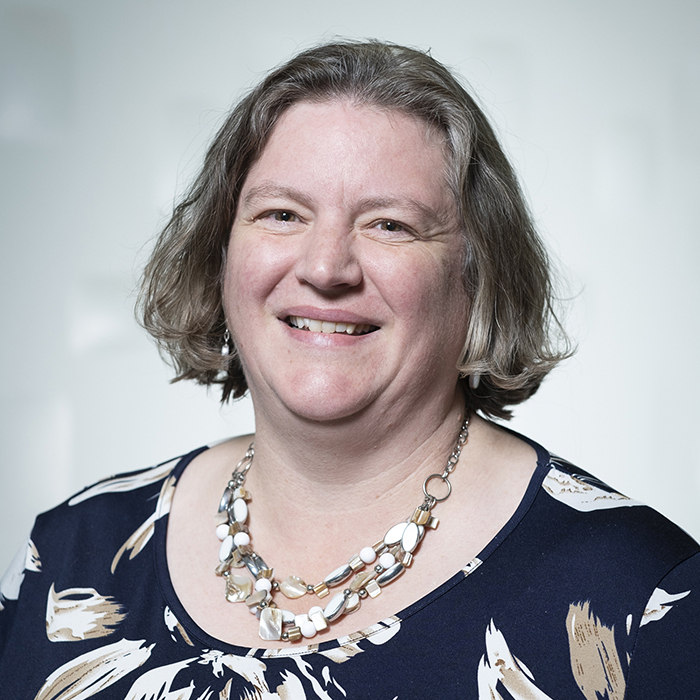
Linda Prokopy
University of Vermont
Linda Prokopy (PI) is an interdisciplinary social scientist, Dean of the College of Agriculture and Life Sciences at the University of Vermont, and the Project Director of the Diverse Corn Belt Project. Formerly Department Head and Professor in the Horticulture and Landscape Architecture department at Purdue University, her research focuses on diversifying our agricultural landscape to be more sustainable for the environment, for farmers, and for communities. Linda has three children who keep her busy outside of work and is actively engaged in her community. In her “spare” time, Linda loves to read and hike in the woods.
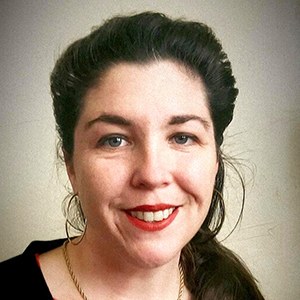
Emily Usher
Purdue University
Emily Usher is a natural resource social scientist working at Purdue University as the Project Manager for the Diverse Corn Belt Project. Originally from the Midwest, Emily values the environmental, economic, and social opportunities our natural environment provides. Understanding the balance between these three components drives her research interests in motivators and barriers to practice adoption, public policy development, and community engagement. Outside of work, Emily likes to garden and spend time with her family, friends, and dog.
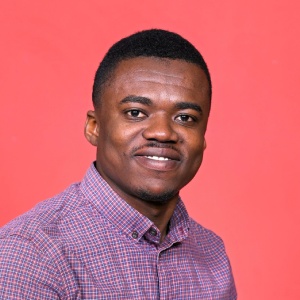
Randy Ackah
Illinois State University
Randy Ackah is a graduate student in the Department of Agriculture at Illinois State University and a member of the DCB Markets Team. Randy is a Ghanaian, and he has an interest in understanding factors that influence consumer and buyer behavior in agricultural markets. His current research focuses on practices along the agricultural value chain that can create sustainable solutions for food production. He is an avid learner, always seeking to expand his knowledge and understanding of the world around him. Randy is a soccer enthusiast and a lover of sitcoms.
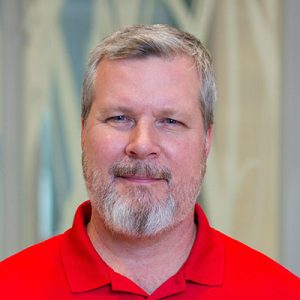
J. Arbuckle
Iowa State University
J. Arbuckle is professor and Extension rural sociologist at Iowa State University. His research and Extension efforts focus on improving the environmental and social performance of agricultural systems. His primary areas of interest are drivers of farmer and agricultural stakeholder soil and water conservation behaviors, especially related to climate change adaptation and mitigation. He is director of the Iowa Farm and Rural Life Poll, an annual survey of Iowa farmers.
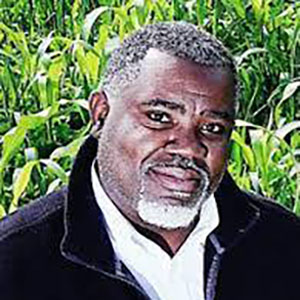
Shalamar Armstrong
Purdue University
Dr. Armstrong is an Environmental Soil Scientist and Associate Professor in the Department of Agronomy at Purdue University. His research program investigates the agronomic, environmental, and economic impacts of current and emerging regenerative agricultural practices that reduce nutrient and soil loss and promote carbon farming in the Upper Mississippi River Basin. Dr. Armstrong’s research is executed on multiple scales ranging from the soil microbiome to the evaluation of conservation practices on field and watershed scales. Annually, his applied research program advances the knowledge of the agricultural and farming community on cropping systems management that facilitates nutrient loss reduction, nutrient cycling, and competitive crop productivity.

Ishraq Ashwara
Purdue University
Ishraq Ashwara is a Ph.D. student in Horticulture Social Science at Purdue. She was raised in a Palestinian farming family where she developed her interests in the physical environment and local vegetation. Her research focuses on the documentation and analysis of landscape transformations using interdisciplinary approaches. Also, she is passionate about traditional knowledge of agriculture; landscape management; and design – especially in the Mediterranean area. Building on traditional and modern scientific approaches, Ishraq hopes to contribute to rethinking and designing natural and agricultural landscapes in different contexts. As a research assistant with the CCED and the DCB teams at Purdue, Ishraq will contribute to different agricultural and natural resource management research and design projects – mostly in the American Midwest.
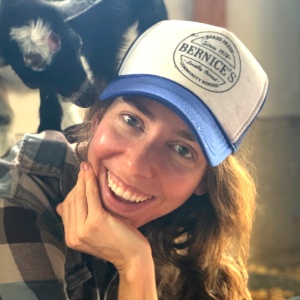
Lauren Asprooth
Center for Integrated Agricultural Systems, University of Wisconsin
Lauren is a political ecologist working on understanding the social, political, and economic underpinnings of our food and agricultural systems. Born and raised in Northern Illinois, her current research examines the many ways in which farmers in the Corn Belt can be supported to transition to more diversified, resilient agricultural systems from grassroots peer-to-peer farmer networks to market development to Farm Bill policies.

Shadi Atallah
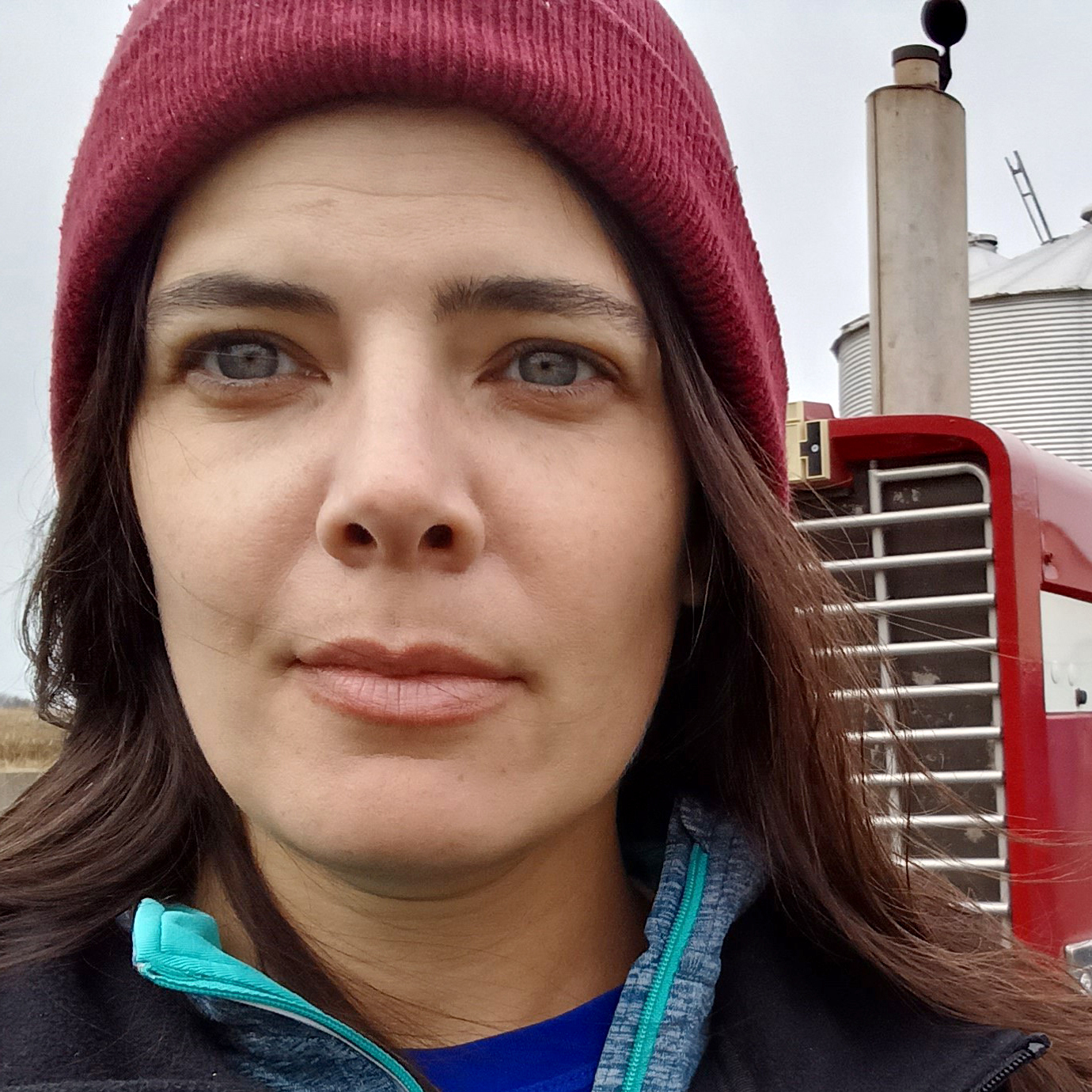
Megan Baskerville
The Nature Conservancy
As Illinois’ Agriculture Program Director for The Nature Conservancy, Megan Baskerville promotes and implements a suite of programs to support sustainability practices across Illinois on farms and with industry partners. Prior to this role, Megan was TNC’s Upper Sangamon River Watershed Manager, tasked with learning and motivating local and state level partners to take coordinated, on-the-ground action to meet ambitious supply chain sustainability goals. Previously, she served as the Watershed Specialist with the Macon County Soil & Water Conservation District, where she successfully secured and led collaborative IEPA 319 and NRCS RCPP grant programs coordinating efforts to increase adoption of edge-of-field and in-field practices to limit nutrient and sediment delivery to Lake Decatur. She received her B.S. in Geography & Environmental Resources from SIU-Carbondale.
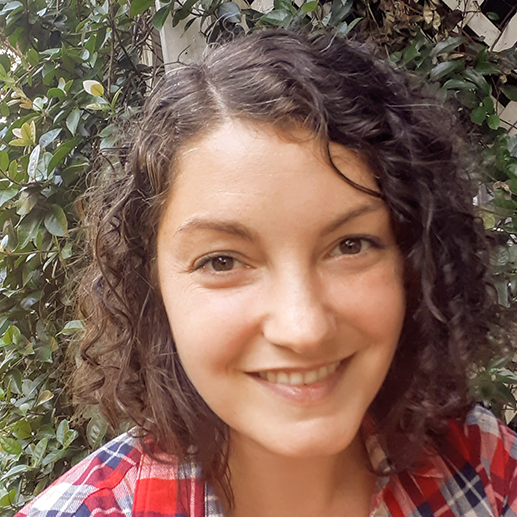
Carmen Blubaugh
University of Illinois
Carmen Blubaugh is an insect ecologist at the University of Illinois. She is curious about how biodiversity can help protect crops while enhancing prosperity in crop production and throughout our community. With the Diverse Corn Belt team, Carmen surveys weed and insect communities on farms across the corn belt to measure the consequences of diversifying crop rotations across trophic levels.
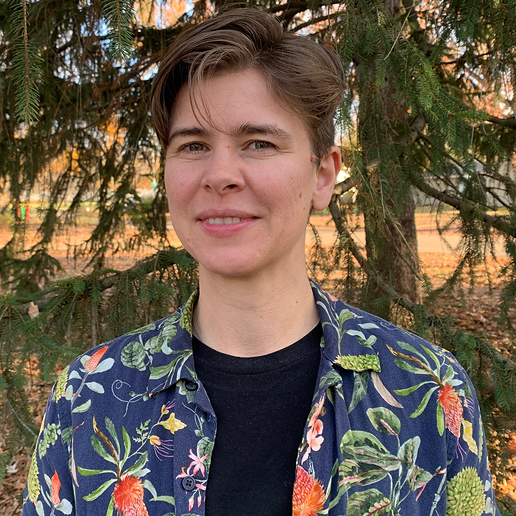
Cate Loomis
Illinois-SARE North Central
Cate Loomis has ten years experience developing and coordinating grant funded conservation agriculture programs. These have included managing government conservation programs at a Soil and Water Conservation District, advocating for legislation to support sustainable agriculture in Illinois, and developing a multi-year SARE funded research project. They now use their grant writing experience and knowledge of the SARE program to help farmers, researchers, and agriculture educators learn about and apply for SARE grants. Their additional experience as a regenerative produce farmer helps them better understand the challenges facing farmers and find new opportunities for IL SARE to support them and their operations.
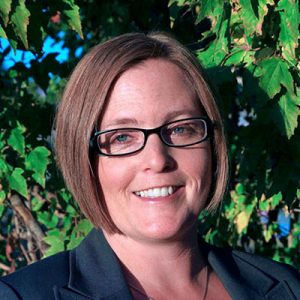
Sarah Church
Montana State University
Dr. Sarah P. Church is an assistant professor in Geography and Planning in the Department of Earth Sciences, Montana State University, where she runs the People Places Water Lab. Dr. Church has expertise in stakeholder engagement surrounding watershed management and decision-making processes related to climate adaptation. The People Places Water Lab has funded research that looks at human dimensions of water resources across urban and working landscapes. Their research seeks to understand how to build inclusive planning and decision-making processes that advance social and ecological goals and contribute to the adaptive capacity of people and communities.

Finnleigh Doherty
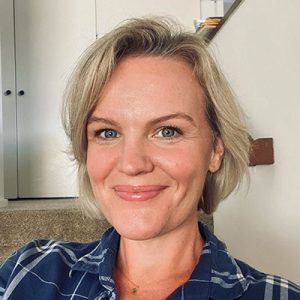
Christine Elliott
Purdue University
Christine Elliott is an incoming entomology Ph.D. student at Purdue University. Her master’s research at the University of Hawaiʻi at Mānoa centered on conservation and population ecology of a federally listed endangered Hawaiian moth. As she joins the Kaplan Insect Ecology Lab and the DCB project, Christine is excited to broaden her conservation efforts by investigating the impact of farming system diversification on insect biodiversity and ecosystem function.

Lydia English

Shah-Al Emran
University of Illinois Urbana-Champaign
Shah-Al Emran is a Research Scientist in the Department of Crop Sciences at the University of Illinois Urbana-Champaign. His work advances sustainable agriculture and resilient food systems through cutting-edge research and farmer engagement. At the Center for Advanced Bioenergy and Bioproducts Innovation and the Diverse Corn Belt Project, he leads interdisciplinary research on the productivity, profitability, and scalability of perennial bioenergy crops such as Miscanthus across the U.S. Midwest. Integrating remote sensing and machine learning, his research provides data-driven insights into cropping system performance and sustainability. He is also dedicated to teaching, outreach, and mentoring future agricultural leaders.
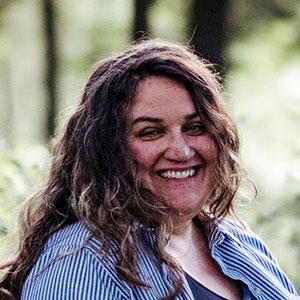
Kristin Floress
USDA Forest Service
Dr. Floress is a research social scientist with the USDA Forest Service. She studies and models how social factors impact and are impacted by natural resources planning, management, conservation, and restoration across public and private lands. Her interests range from understanding individual property owner conservation behaviors—particularly with regard to family forest owners, agricultural producers, and urban residents—to collaborative cross-boundary landscape scale conservation. She has multiple current research projects in these areas.
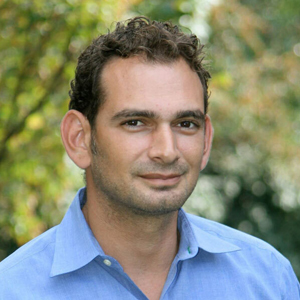
David Frabotta
Conservation Technology Information Center
David Frabotta is director of communications for CTIC. He is responsible for public relations, marketing, events, outreach, and impact reporting for CTIC. He has worked as a business journalist for most of his career, predominantly for agriculture media brands that focus on inputs, technology, and sustainability. He most recently was director of content for Farm Journal’s Trust In Food, and he is passionate about helping farmers create more resilient, efficient, and profitable production systems.
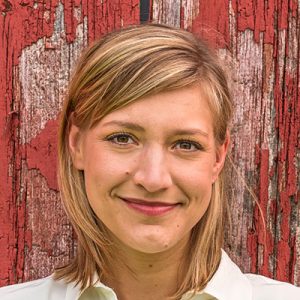
Paige Frautschy
The Nature Conservancy
Paige Frautschy is the Agriculture Program Director for the Iowa chapter of The Nature Conservancy (TNC) as well as the Minnesota, North Dakota, and South Dakota chapters. She works closely with the farming and conservation communities on sustainability initiatives that build soil health on farms, improve water quality, and climate resilience in Iowa and beyond. Paige oversees the 4R Plus program in Iowa and the diverse coalition of organizations that provide guidance to the program. Paige studied biology and ethics at the University of Northern Iowa and received her MS in agroecology from the University of Wisconsin-Madison. She has worked on her in-laws’ beef and grain farm in southwest Wisconsin and is a Certified Crop Advisor. Paige’s involvement in the food and ag sector comes full circle as she and her husband own several restaurants located in Wisconsin, Colorado, and Washington.
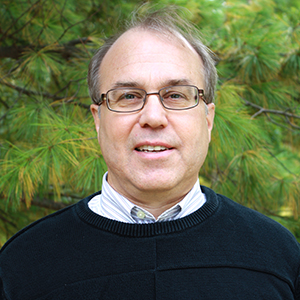
Phil Gassman
Environmental Scientist
Phil Gassman is an environmental scientist whose research experience has focused on supporting the integration of environmental, economic, and other models to assess policy scenario impacts for watersheds and other regions and testing of field- and watershed-scale models. He will be working on the application and integration of the Soil and Water Assessment Tool (SWAT) ecohydrological model within the overall modeling system being developed for the Diverse Corn Belt Project. These simulation research efforts will include analyzing cropping systems, management practices, hydrologic responses, and water quality impacts in selected Corn Belt watersheds.
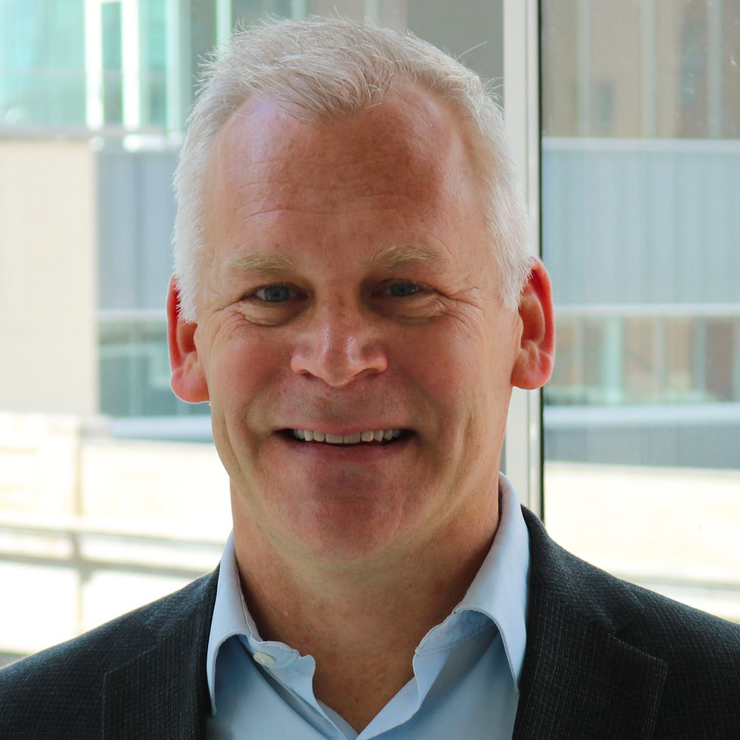
Ken Genskow
University of Wisconsin-Madison
Dr. Ken Genskow, University of Wisconsin-Madison, is a Professor and Extension specialist in the Department of Planning and Landscape Architecture, focused on environmental planning and policy, watershed planning, and collaborative and participatory approaches to resource management. His applied research explores wide-ranging issues around collaboration, governance, and land conservation. He works closely with Extension educators and partners across Wisconsin and regionally on water resource, conservation planning, and collaborative resource management activities. Genskow has a B.S. in General Engineering and a Master’s in Urban Planning from the University of Illinois. He earned his Ph.D. in Urban and Regional Planning from University of Wisconsin–Madison. Ken served as an engineer/planner with Peace Corps Nepal from 1989-1992.
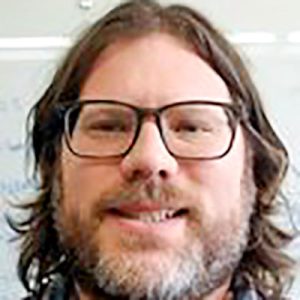
Benjamin Gramig
USDA-Economic Research Service
Dr. Benjamin Gramig is a research agricultural economist at the U.S. Department of Agriculture, Economic Research Service (ERS), where he conducts applied research at the interface between agriculture and the environment. The majority of Ben’s research is motivated by science-based decision-making and public policy and is often interdisciplinary in nature. He has a strong interest in the economics of water quality, climate change, ecosystem services, and economic management of spatial-dynamic processes in the environment.
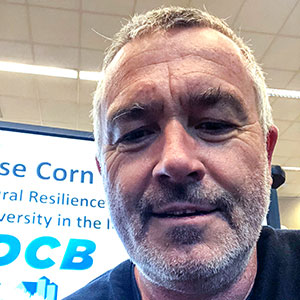
Steve Hallett
Purdue University
Steve Hallett is a member of the DCB Education Team who is interested in promoting small farm sustainability in the Corn Belt. He is also engaged in developing a better understanding of diversity issues in agriculture. He is a professor of horticulture at Purdue University.
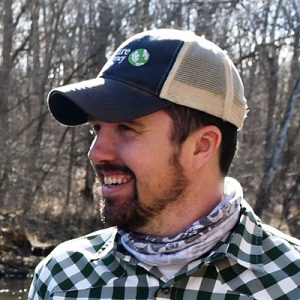
Seth Harden
The Nature Conservancy
Seth Harden, Upper Wabash River Project Director for The Nature Conservancy, grew up in central Indiana and received his bachelor’s degree of Forestry in 2010 from Purdue University. While at Purdue, he focused his studies on natural resource management and environmental policy. Seth completed his M.S. in Public Affairs, with a concentration in environmental policy analysis, from the O’Neill School of Public and Environmental Affairs at IUPUI in 2019. Previous experience includes employment with the United States Department of Agriculture Natural Resources Conservation Service and Indiana Farm Bureau Incorporated. Seth lives with his wife and children in Westfield, IN, which they consider their home and base for adventures across the country and globe.
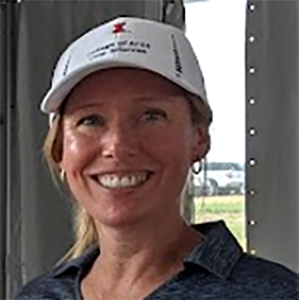
Emily Heaton
University of Illinois
Dr. Emily Heaton joined the Crop Sciences department at the University of Illinois as Professor of Regenerative Agriculture in 2021 after twelve years at Iowa State University, where she remains an Affiliate Professor in the Department of Agronomy. Her research investigates the growth and productivity of perennial C4 grasses so we can manage them for multiple ecosystem services, especially biomass provision. As Feedstock Production Theme Leader for the Center of Advanced Bioenergy and Bioproducts Innovation (CABBI), Dr. Heaton advances CABBI’s generation of fundamental plant science for production of high-yielding, resilient grass crops that produces oils in their stems. As director of the Illinois Regenerative Agriculture Initiative, Dr. Heaton connects researchers and stakeholders to advance knowledge and practices that return value to people and the land. Her family owns and operates Caveny Farm near Monticello, IL, where they graze cattle, sheep, and heritage poultry for local sale; the farm serves as inspiration and proving ground for their ideas and collaborations.
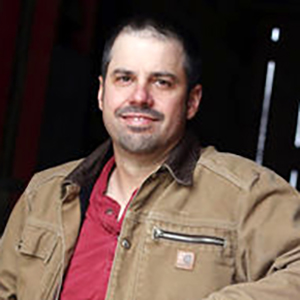
Ryan Heiniger
Conservation Technology Information Center
Ryan Heiniger is Executive Director of the Conservation Technology Information Center (CTIC). He worked for Ducks Unlimited for 15 years, then created and led the Precision Ag and Conservation Solutions Program for Pheasants Forever and Quail Forever. Prior to joining Conservation Technology Information Center, Ryan served as director of America’s Conservation Ag Movement (ACAM) with Farm Journal’s sustainability division. He earned a bachelor’s degree in wildlife biology from Iowa State University. Ryan and his wife, Nikki, are raising their son and daughter as 5th-generation family farmers along the banks of the Mississippi River in southeast Iowa.
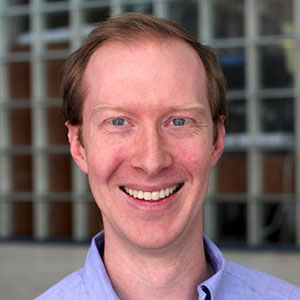
Jason Hill
University of Minnesota
Jason Hill is Professor in the Department of Bioproducts and Biosystems Engineering at the University of Minnesota. He also serves as a Resident Fellow of the University’s Institute on the Environment. His research focuses on the consequences of food, energy, agriculture, and natural resources from a life-cycle perspective. Dr. Hill has testified before U.S. House and Senate Committees on the environmental effects of transportation biofuels. His work has been published in the journals Science and the Proceedings of the National Academy of Sciences. He recently served on the National Research Council’s Committee on the Economic and Environmental Impacts of Increasing Biofuels Production and on the United States Environmental Protection Agency Science Advisory Board’s Biogenic Carbon Advisory Panel. Dr. Hill received his AB in Biology from Harvard College and his Ph.D. in Plant Biological Sciences from the University of Minnesota.
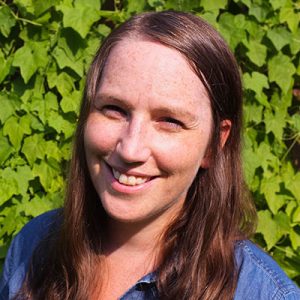
Natalie Hunt
University of Minnesota
Dr. Natalie Hunt is a teaching assistant professor in Bioproducts & Biosystems Engineering at the University of Minnesota. Her research involves modeling environmental impacts of conventional and alternative agricultural systems, and her teaching explores sustainable food systems, natural resources consumption, and sustainable systems management, all with an emphasis on quantitative and sustainability literacy. Outside the classroom, she enjoys spending time with her family, biking, swimming, gardening, and cooking.
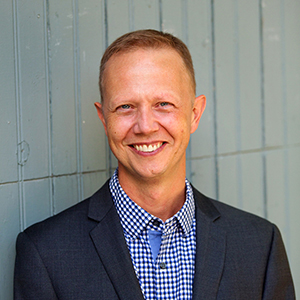
Kris Johnson
The Nature Conservancy
Kris Johnson is the Director of the North America Agriculture Program of The Nature Conservancy. In this position, he leads national strategies working with public and private partners to increase adoption of regenerative agricultural practices in crop systems and grazing lands. He currently serves as vice chair of the board for the Ecosystem Services Market Consortium and is a board member of the U.S. Cotton Trust Protocol. In prior roles with the Nature Conservancy, Kris provided strategic leadership and scientific expertise for conservation work in agriculture and freshwater, most recently as deputy director of agriculture in North America. He received a bachelor’s degree from Bowdoin College and an M.S. and Ph.D. in Conservation Biology from the University of Minnesota. Kris was a Fulbright Scholar, a MacArthur Scholar, and a Senior Fellow in Sustainable Agricultural Systems at the University of Minnesota.
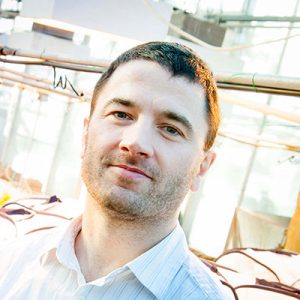
Ian Kaplan
Purdue University
Ian Kaplan is a professor in the Department of Entomology at Purdue University. His lab conducts research on the ecology and management of insects in agricultural landscapes, focusing on pests and beneficial species involved in provisioning ecosystem services (e.g., biocontrol, pollination). For the DCB project, he will be investigating how variation in cropping system diversity affects the composition and function of insect communities on farms.

Paul Kelleher

Elise Koning
Conservation Technology Information Center
Elise is a project director at the Conservation Technology Information Center. She studied agricultural communication at Purdue University and earned her master’s in agricultural and Extension education at Penn State University. After teaching agriculture and advising the local FFA chapter, Elise lived and worked on sheep and dairy farms in New Zealand for a year. She is secretary for the Indiana Sheep Association and a board member for the Indiana Forage Council. Elise raises sheep, Christmas trees, goats, and llamas on her family’s farm with her husband, active sheepdog, and many barn cats.

Peter Lammers
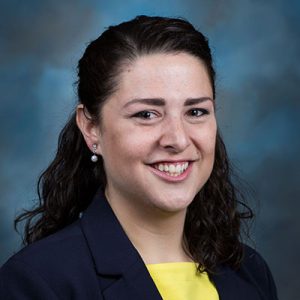
Sarah LaRose
Purdue University
Dr. Sarah LaRose is an assistant professor of Agricultural Education in the Agricultural Sciences Education and Communication department at Purdue University. She holds a joint appointment between the College of Agriculture and College of Education, working as an agricultural teacher educator, preparing the next generation of high school and middle school Agriculture CTE teachers. Currently, she is exploring the development of preservice teachers’ instructional planning and conducting research related to laboratory teaching spaces. Outside of work, Sarah loves to garden, draw and paint, travel, and cook and bake.
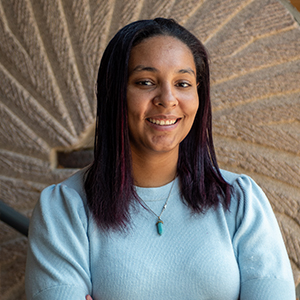
Cheyenne Lei
IIHR-Hydroscience and Engineering and the School of Earth, Environment & Sustainability
Cheyenne Lei is a postdoctoral research scholar with IIHR-Hydroscience and Engineering and the School of Earth, Environment & Sustainability. Her research focuses on coupled human-environment change, atmospheric physics, geographic information systems, remote sensing, and landscape ecology. Dr. Lei facilitates the development of modelling different landscapes using farmer input, remotely sensed imagery, cadastral mapping, and aerial imagery in order to advance sustainable agricultural practices and the reintroduction of diversified cropping and livestock over space and time within the major Midwest.

Cate Loomis
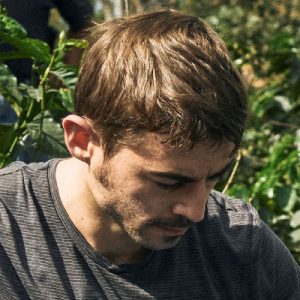
Andrew Margenot
University of Illinois
Dr. Andrew Margenot is a soil scientist at University of Illinois Urbana-Champaign. As a co-PI for the Diverse Corn Belt Project, he works on biogeochemical indicators of agroecosystem function across a range of diversified management practices, with particular emphasis on organic matter cycling.
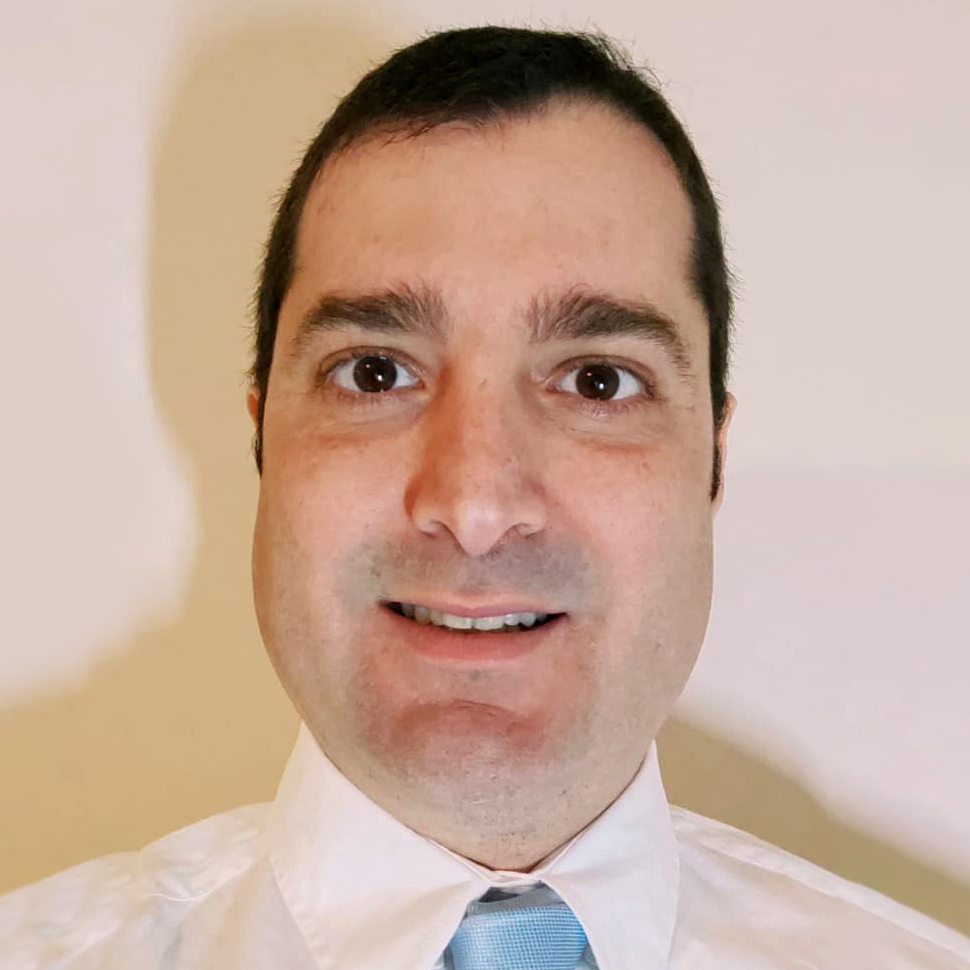
Juliano Marques
Purdue University
Dr. Juliano Marques is a postdoctoral researcher working in Torres Lab (HLA/AGEC) at Purdue University. Dr. Marques obtained a M.S. and Ph.D. in Marketing, Strategy, and Innovation from the Federal University of Lavras, Brazil. Dr. Marques joined Torres Lab in 2020 as a Ph.D. visiting scholar to collaborate in projects related to the intersection between consumer behavior and food safety for specialty crops. Dr. Marques is currently working on the USDA-SAS funded Diverse Corn Belt Project and will focus on consumer preferences, willingness-to-pay, and valuation for foods from diversified farmers.
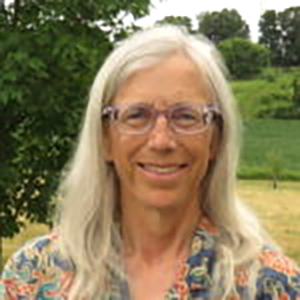
Elizabeth Maynard
Purdue University
Dr. Liz Maynard is an Extension specialist and clinical engagement professor in the Department of Horticulture and Landscape Architecture at Purdue University. She serves as co-lead for Extension efforts on the Diverse Corn Belt Project. Her other applied research and Extension work focuses on vegetable production in field and high tunnels. Away from office and fields, Dr. Maynard loves playing flute in the community band and with the local contra-dance band, the Hoosier Recruits.
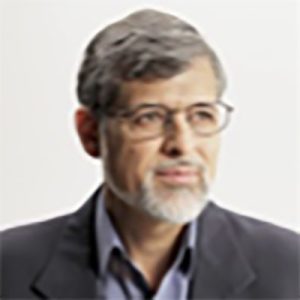
David Mulla
University of Minnesota
Dr. David Mulla is the Larson Chair and professor for Soil & Water Resources in the Department of Soil, Water, and Climate at the University of Minnesota and director of the Precision Agriculture Center. Dr. Mulla received a Ph.D. in Agronomy from Purdue University with emphasis in soil physics. Dr. Mulla’s research emphasizes precision conservation, land management and water quality interactions, ecosystem services, and foodshed modeling.
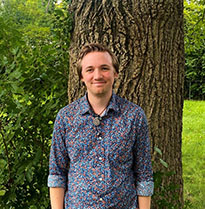
Casey Olechnowicz
University of Maine
Casey Olechnowicz is a natural resource social scientist focused on using social psychology and communication approaches to solve complex environmental problems. He has worked in the Natural Resource Social Science Lab at Purdue University since 2022, exploring the human dimensions of agricultural conservation, policy, and management. He received his B.S. in environmental geography from Old Dominion University and later pursued graduate studies in his home state of Maine. At the University of Maine in the School of Forest Resources, his dissertation explored the social dimensions of Lyme disease in the Northeast.
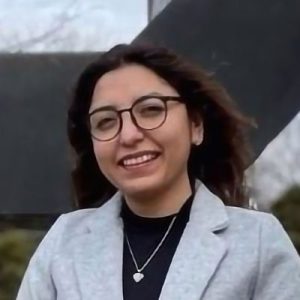
Katherine Pivaral
Purdue University
Katherine Pivaral is a master’s student in the Horticulture and Landscape Architecture department at Purdue University. Her research focuses on making emerging markets more economically and environmentally sustainable. She has international experience working with sustainable agriculture, rural development, and youth empowerment. Katherine is from Guatemala; she loves traveling and learning about different cultures around the world.
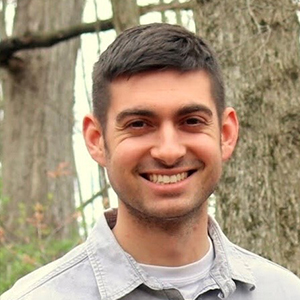
Frank Rademacher
The Nature Conservancy (TNC)
Frank Rademacher is the Illinois Conservation Agronomist with The Nature Conservancy (TNC). He also farms with his father in East Central Illinois where he employs a mix of conservation practices on their corn-soybean farm, including cover crops, no-till, pesticide reduction, and nutrient management. In his role at TNC, he primarily works on TNC’s Farmer Advisor strategy, which seeks to empower the advisors farmers trust with the skills and resources to employ conservation practices.
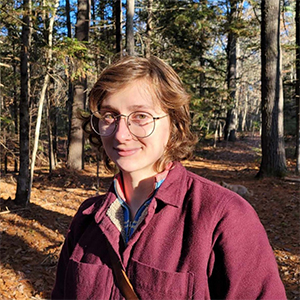
Brennan Radulski
Purdue University
Brennan Radulski is a political ecologist and post-doctoral researcher at Purdue University. Their research generally examines how power dynamics in U.S. food system policy and economic decision-making shape the material realities, cognitions, and behaviors of farmers and other food system actors. This research focus is used to identify leverage points for transformative changes toward economic, social, political, and ecological resilience and sustainability within the U.S. food system.

Yichao Rui
Purdue University
Dr. Yichao Rui is an Assistant Professor in Agroecology at Purdue University. He utilizes an integrated systems approach to study the nexus of soil, crops, water, microbiomes, and their interrelationships that underpin agroecosystem performance and services to identify opportunities and actionable steps for ecological and meaningful transformation of cropping systems in the Midwest and around the world. Yichao holds Ph.D. degrees in Microbial Ecology and Soil Science from Chinese Academy of Sciences and Griffith University (Australia). Before joining Purdue, he worked at the University of Western Australia, University of Wisconsin-Madison, and Rodale Institute on a wide range of projects investigating the impacts of climate change and land use on agroecosystem resilience and its environmental and social outcomes.

Mariah Schaeper
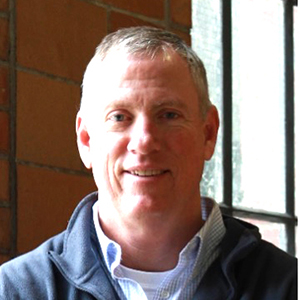
Keith Schilling
University of Iowa
Dr. Keith Schilling is the State Geologist of Iowa and Director of the Iowa Geological Survey at the University of Iowa. Dr. Schilling is also a research engineer at IIHR-Hydroscience and Engineering at the University of Iowa and an adjunct assistant professor at the University of Iowa Department of Earth and Environmental Science and at Iowa State University Department of Natural Resources Ecology and Management. He received an M.S. in Water Resources from Iowa State University and a Ph.D. in Geology from the University of Iowa. His research has focused on a variety of water-related issues in Iowa, including groundwater flow and quality, surface and groundwater interaction, nonpoint source pollution, and watershed and floodplain processes.

Silvia Secchi
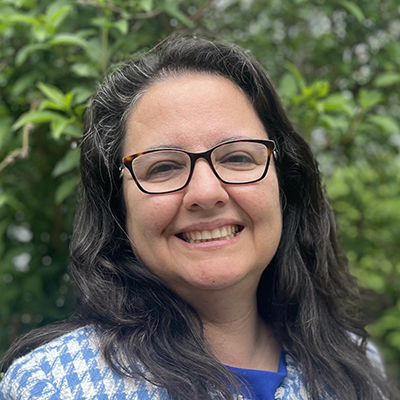
Aslihan Spaulding
University of Kentucky
Aslihan Spaulding is a Department Chair and a Professor in the Department of Agricultural Economics at the University of Kentucky. Spaulding received a Ph.D. in Agricultural Economics, a master’s in Economics, and a master’s in Agricultural Economics from the University of Kentucky and a bachelor’s in Economics from Bogazici University in Turkey. She worked at Illinois State University between 2003 and 2024, having served in many roles, including the Interim Chair, graduate program coordinator, and the study abroad coordinator of the Department of Agriculture. She currently serves on the board of directors of the Agricultural and Applied Economics Association. Her research interests include survey methodology, farmer and consumer behavior, strategic agribusiness sales, and new product development management.
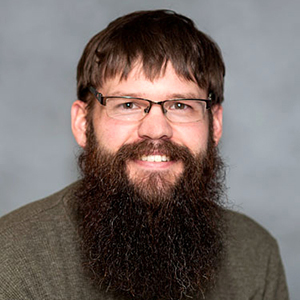
Dr. Matthew Streeter
University of Iowa
Matthew Streeter is an Assistant Research Scientist at the University of Iowa’s Iowa Geological Survey. He is a soil scientist specializing in anthropogenic soil morphology, soil health, water quality, and soil and groundwater relationships. Matthew is an Adjunct Assistant Professor in the College of Liberal Arts and Sciences at the U of I where he teaches Soil Genesis and Geomorphology. He is a licensed well driller and operates the IGS drilling rig, which is used for geologic mapping and shallow groundwater monitoring and also manages the IGS soil and sediment laboratory.
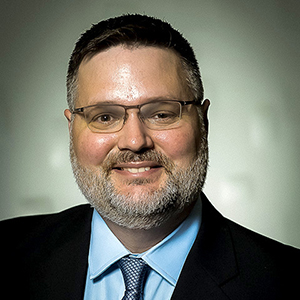
Aaron Thompson
Purdue University
Dr. Aaron Thompson is an Associate Professor of Landscape Architecture at Purdue University whose work emphasizes the power of place-based planning to support community land use, recreation, and conservation decision-making. Integral to his teaching and research is an applied landscape planning approach that incorporates social-ecological science into the design process to create landscape transformations capable of balancing the needs of human and natural systems. He is currently working on projects building geodesign tools to support forest conservation planning, developing innovative community capacity approaches that respond to the challenge of water quality management in the Great Lakes basin, and providing design and research support to sustainable development projects enhancing the future of the Midwestern landscape.

Michael Tiboris
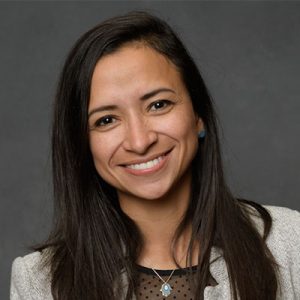
Ariana Torres
Purdue University
Dr. Ariana Torres’ research at Purdue University focuses on the decision-making processes of specialty crop farmers, along with the economic feasibility of technologies used by industry stakeholders. Her expertise includes the economic modeling of adoption of new technologies, the development of decision-making tools for specialty crop growers, and the economic impact of growers’ decision-making processes. Her research provides relevant research-based information to her extension program, Horticulture Business (www.hort.purdue.edu/hortbusiness), to provide trainings and publications to farmers, business owners, Extension personnel, and policymakers.
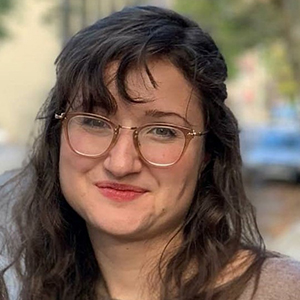
Rebecca Traldi
Purdue University
Dr. Rebecca Traldi joined the DCB team in July 2022, when she started as a postdoc in Purdue University’s Department of Horticulture and Landscape Architecture. Rebecca is an environmental social scientist. She completed her Ph.D. in Geographical Sciences at the University of Maryland-College Park, where she studied the impact of voluntary sustainability programs. Rebecca supports DCB’s efforts to understand farmer perspectives regarding agricultural diversification by conducting farmer surveys and focus groups. Rebecca previously worked with the World Wildlife Fund for eight years, where she focused on agricultural supply chain sustainability, corporate engagement, and plastic pollution. She also has experience researching farm livelihoods and payment for environmental services programs with the World Agroforestry Center in Hanoi, Vietnam.
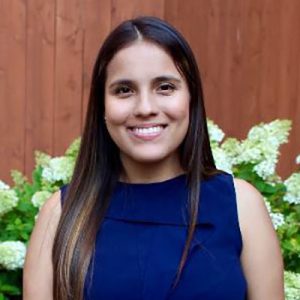
Camila Ulloa
Purdue University
Camila Ulloa is a master’s student in Horticulture and Landscape Architecture at Purdue University. She is part of the Markets Team for the Diverse Corn Belt Project. Her study focuses on looking for ways to accelerate market growth throughout the agricultural value chain. An important component of her research is to understand the drivers and obstacles behind the adoption of diverse systems. Camila enjoys spending time with her family and friends.
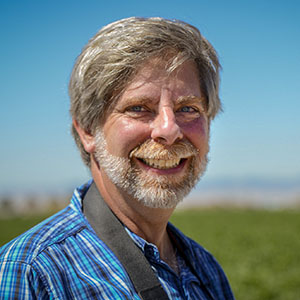
Steve Werblow
Conservation Technology Information Center
Steve Werblow has worked with the Conservation Technology Information Center in various capacities since the early ‘90s, helping promote conservation practices across the country. A graduate of Cornell University’s College of Agriculture and Life Sciences, Steve is an award-winning writer and photographer, and self-described “soil hugger.” He is based in Ashland, Oregon, and has covered agricultural stories on six continents for a wide range of farm magazines.
